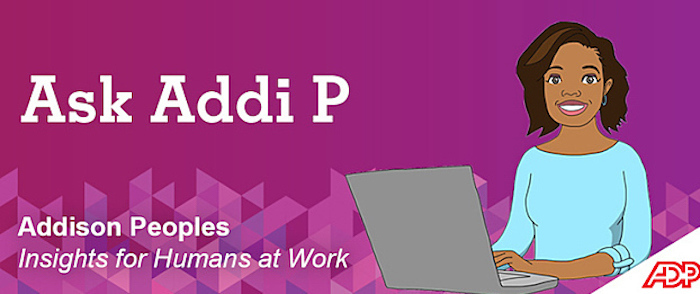Ask Addi P.: How Can We Help Distracted Employees?

Dear Addi P.,
Several managers have come to ask our HR staff how to help distracted employees who may be mentally drained, depressed or going through a difficult situation at home. We don't want to encourage managers to get too involved because they aren't qualified as mental health professionals, yet we know these issues affect both our employees' performance and their quality of life. How can we help employees who are facing mental and emotional issues?
— Worried in Waco
Dear Worried,
First of all, it sounds like managers trust your HR department and seek you out for advice — that's a sign you have a positive work environment focused on helping employees succeed. Second, you're not alone in your concerns about distracted employees who may be feeling mentally drained or suffering from depression — it's an issue many, if not all, employers face. In 2015, according to estimates from the National Institute of Mental Health, there were more than 40 million adults with a mental illness in the U.S.
While this issue is prevalent, your caution regarding managers' responsibility to help their workforce with these matters makes sense. In most instances, employees are better served by professionals who have the experience and training to handle complex mental and emotional issues.
Here are three steps you can take that may help:
1. Refer Employees to Intervention Programs
Employee Assistance Programs (EAPs) help employees resolve personal problems — whether emotional, financial, familial or medical. If your company offers an EAP service, make sure your managers know about the program. Managers should have easy access to information they can share with employees about how to contact the EAP and that they promote it as a valuable and confidential resource.
If you don't have an EAP, contact a few vendors to determine whether it might be an option to consider. Depending on how many issues you're seeing, the investment may be necessary to increase productivity and reduce rates of so-called presenteeism.
2. Make Wellness Available at Work
Some employees may not be able to work wellness habits such as exercise, healthy eating and proper rest into their daily routine outside of work. When you make wellness programs available during work hours, however, it can help create the balance and well-being that your workforce craves. Leverage your managers to promote any wellness programs you already offer.
If you don't have anything in place, send out a survey or conduct focus groups to identify what would make a difference for your employees. Use the results to identify and implement the most relevant programs. Depending on the issues causing employees to feel mentally drained, depressed or distracted, it may help to provide wellness programs that give employees an opportunity to recharge. Consider offering an onsite yoga class during lunch, having healthy choices in the cafeteria or inviting employees to a "daily steps" challenge to increase activity levels. Creating a culture focused on healthy behaviors can do wonders for employees' well-being.
3. Promote Health Care Benefits
You should also work to make sure your managers and employees are aware of — and use — the health care benefits your company provides. People who manage their health and build a healthy doctor-patient relationship are more likely to have a medical professional who can help them address physical, mental and emotional issues.
"When I close the door to the exam room and it's just the patient and me, with all the bureaucracy safely barricaded outside, the power of human connection becomes palpable. I can't always solve my patients' issues, but the opportunity to try cannot be underestimated," Danielle Ofri, M.D., wrote in the New York Times.
Rather than trying to fix problems for distracted employees who seem mentally drained or depressed, focus on referring employees to the right resources. Provide managers with the information they need about the programs your company provides, emphasize that confidentiality is of the utmost importance in handling these situations and follow up to ensure that everyone has the support they need.
Stay up-to-date on the latest workforce trends and insights for HR leaders: subscribe to our monthly e-newsletter.



